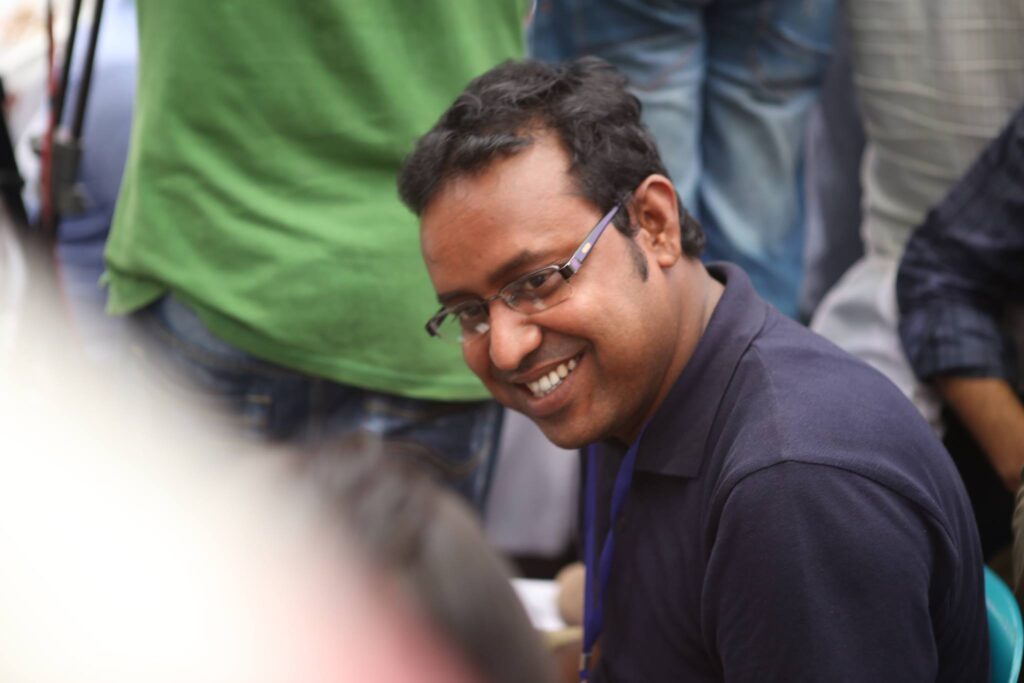The last time I spoke with Manik, he had just gotten out of jail. He called me and we chatted about his time in prison.
I asked, “Have you suffered a lot in jail?”
Manik was silent for a while. He replied, “Bhai, I was in a very bad condition. There were more prisoners than the usual capacity of the jail. Far from sleeping, I could not even lie down properly. Most of the captives were BNP leaders and workers like us. I was with thieves and robbers. This government has made us thieves and robbers, bhai. Is it a crime to support and work for BNP now?”
Before delving into answers to Manik’s question, let’s know who Manik is. Mahbub Manik was a man in his forties. Manik was responsible for the digital media operation of the BNP media cell, the media wing of the main opposition party in Bangladesh. He was not a famous political leader that you would know of, he was just a tireless activist who, despite his graduation from a private university, never looked for a regular job. If he wanted – he could have made a great living in the corporate world, or pursued a government job, or even, like many of his friends, moved overseas for higher education and settled down for a cushy suburban life. He dedicated his life to working for a party that has been struggling to restore democracy in Bangladesh for more than one decade. People in Bangladesh always decry why educated smart young people don’t come to politics. Well – here was one – Manik embraced politics as his day and night job. And our authoritarian regime eliminated him before he could perform up to his full potential. He was too young to die!
Mahbub Manik was arrested in front of the BNP Chairperson’s office as a part of the crackdown that the law enforcing agencies of the Bangladesh government and the ruling party thugs have been carrying out against the opposition since October 28, 2023. Manik was arrested on the evening of October 28 and released from his imprisonment on November 19. Manik died on the morning of December 15.
When they launched the crackdown on the people of Bangladesh in 1971, the Pakistani Army targeted our brightest minds. When the current Hasina regime launched its brutal crackdown on pro-democracy forces, the police targeted the most active pro-democracy leaders and activists. They targeted Manik and his other colleagues of the BNP Media Cell because, to any force of repression and dictatorship, it is paramount that the truth does not get out. That the world not be exposed to the true extent of the horrors inflicted by them.
Is the death of a seemingly healthy Manik at this young age normal? Like thousands of other opposition leaders and activists, was Manik tortured in custody? Did Manik die enduring physical and mental torture? The answers to these questions may be known someday, or some questions will remain unknown.
Some tentative information we have, however, is very alarming. Between July 28 and December 16, 2023, at least 24,736 opposition party leaders and activists like Manik were arrested just for opposing the current government, 1023 cases were filed, 91,637 people were accused in these cases, 9,059 were injured, and at least 22 people were killed.
And this list is only according to the publicly found information published in newspapers and BNP party sources. Many more people have been arrested, tortured, and harassed in different parts of the country, but the information of which is not readily available. The number of arrests of supporters and leaders of opposition political parties is so high that it has gone far beyond the capacity of Bangladeshi prisons. An inhumane situation has been created.
Some so-called public intellectuals and members of the civil society who have sold out to the ruling party and turned their loyalists try to convince the middle classes who want to maintain their lifestyle by avoiding and trying to ignore “political hassle” that this ongoing movement to restore democracy is just a power struggle between BNP and Awami League.
These civil society members and intellectuals have abandoned democratic values, respect for human rights, and voting rights in favor of visible but unsustainable development. Except for the Awami League government and its beneficiaries, this “development” has made everyone poorer day by day. Common people, whose daily lives are affected by plundering, money laundering, and staggering inequality, have raised the loudest voice for the downfall of this authoritarian government.
Take Shawon Ahmed as an example. Shawon, a laborer by profession, was shot dead by the police in September 2022 for joining a BNP protest. Like Shawon, a peasant named Abdur Rahim was killed in July 2022. In September of the same year, a rickshaw puller named Shahidul Alam and in November, a laborer named Nayan Mia were killed by police. Since 28 October 2023, those who died at the hands of police and ruling party thugs, such as Shamim Molla, Abdur Rashid, and Zakir Hossain, were also ordinary activists.
Back to the last question Mahbub Manik asked me before his death. Is it a crime to work for the opposition? Thousands of leaders and activists like Manik, Shawon, Rahim, and Shamim have answered this question themselves by being tortured, sacrificing their lives, and going to jail repeatedly.
Their sacrifices should confront us with the question: Why did we create this monster? Why did we legitimize a government and allow an oppressive political party to remain in power illegally without a mandate from the people? Why have we let them reach a point where participation in political party activities, rights that are universally recognized and considered as a basic right of any citizen, has been ‘criminalized’?
It is evident that the common people, including the workers, rickshaw pullers, and peasants, now understand the significance of their rights and actively participate in the movement on the streets for their rights, sacrificing their lives for a better future. The question is, when will the so-called “educated class” and “cultural elites” understand this?
Bangladesh’s authoritarian Awami League government has organized yet another farcical election on January 7, 2024. The movement for restoring democracy is going on against this farcical election. The fate of this movement, before and after the 7 January election, will be determined by the future.
But we should remember, at any point in history, in any country, it always requires a long and difficult journey to oust a fascist government and establish democracy. In the case of Bangladesh, in exchange for many lives, blood, and relentless struggle, we surely hope that the right to vote, the freedom of expression, and the right to life and speech will be established.
Let us not forget those by whose lives and sacrifices we continue this journey to establish democracy. Let’s not forget what Shawon wrote on his Facebook wall just some days before he was shot dead by police: “There is no greater position than being an ordinary member (of a political party).”
We always read and write the history of the kings, rulers, and great leaders. The lives of thousands of ordinary people like Shawon and Manik often get lost, sometimes they are only found in the small footnotes of history. Let’s not make that mistake. Let’s make these “ordinary” lives extraordinary in our struggle to establish democracy in Bangladesh.
Jokingly, Mahbub Manik used to say, “I will marry in democratic Bangladesh, only when the Hasina government falls.”
Manik’s dream was not fulfilled. But his desire to establish democracy matches with thousands of unknown and unnamed lives and their aspirations.
In that sense, souls like Mahbub Manik become “sona-manik” of hundreds of mothers in Bangladesh, who lost their sons in this struggle to restore democracy in Bangladesh.
Saimum Parvez is the Executive Editor of the Road to Democracy.


